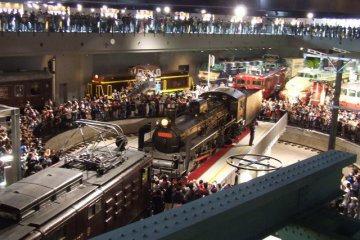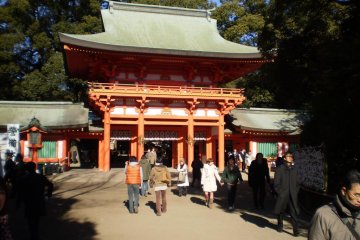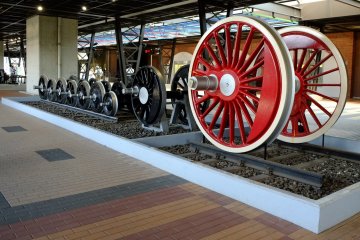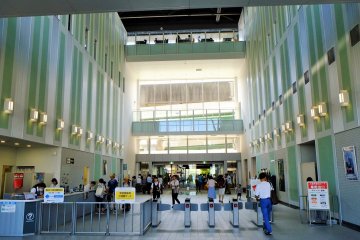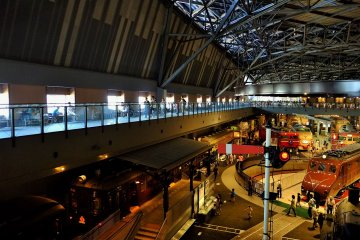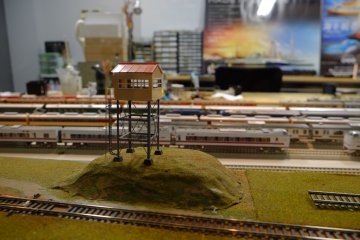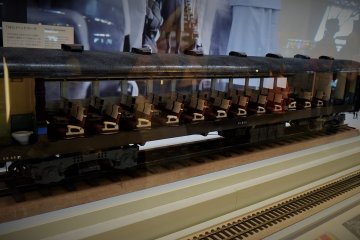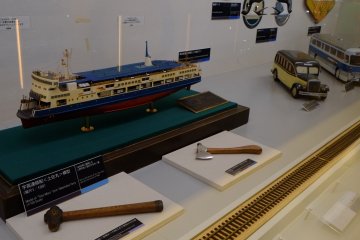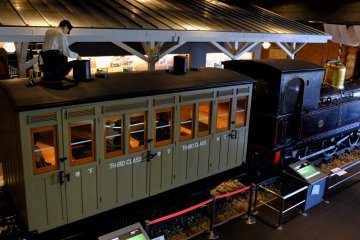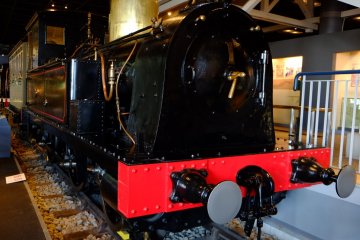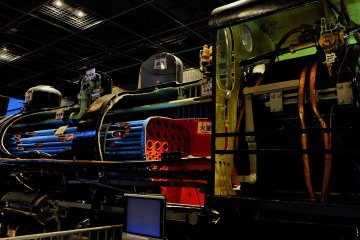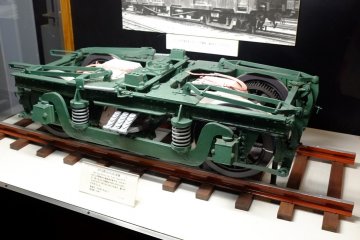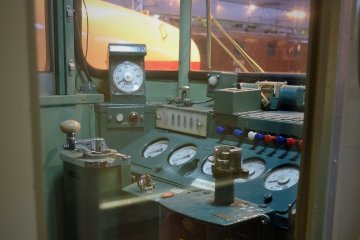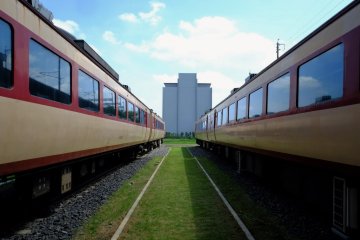The Railway Museum in Saitama is huge. Covering an area of 42,500 m², it contains displays and models from every conceivable aspect of the history of rail travel in Japan, from the very first train to modern Shinkansen incarnations. Less than ten years old, the museum is a fresh and interactive take on train history that won’t only entertain diehard aficionados. The museum’s own train station, Tetsudō-Hakubutsukan, is an easy one stop from Ōmiya.
As you leave the station, it’s obvious which direction to go - a huge pair of bright red train wheels is the first sight to greet you. After passing a few more exhibits, you reach the main entrance; a high-ceilinged white space with ticket machines to one side. After paying your ¥1000, you enter the vast main building; more of a hangar. The lower level contains the bulk of the museum’s carriages and engines; the upper walkway has displays of models, components, and objects of interest. I chose to visit the upper level first, to get a good view of the trains from above and to avoid the crowds and noise (unfortunately the museum’s visitors seemed to consist mostly of uncontrolled children). Delightfully detailed cutaways showed the interiors of carriages through history, alongside running electric models and bitesize historical information. The lower level is a labyrinth of real Japanese trains, including the Class 150 no.1 – Japan’s first locomotive. Many are open for entry, allowing you to stand at the controls of the engines or sit in the carriages’ seats; inserting yourself into history. Between these steel goliaths are interactive displays of engineering and electronics, providing an educational background to the wonderment felt while surrounded by such impressive machines. The upper level ended up being the more enjoyable of the two despite its modest appearances. The lower level was extremely busy despite the time of day, and it was hard to focus on the exhibits while trying not to knock over any sprinting children. The sheer volume of young families surprised me since there wasn’t much at the museum aimed at younger audiences, unlike many western attractions. Another surprise was that I was the only white person I saw there, despite the international popularity of trains as an interest. In addition to the core space, there are several side buildings. These contain displays like an interactive look at the workings of a metro station, and the history of the Shinkansen. There are a couple of expensive food stops, and plenty of places to sit down and take a break.
Overall, Saitama’s Railway Museum is remarkable presentation of Japan’s rail history. The variety of engines and carriages on display ensures you never get bored, and there is enough information available that keeps it from being a purely visual experience. If you don’t mind a few feral tourist offspring, pay it a visit.



